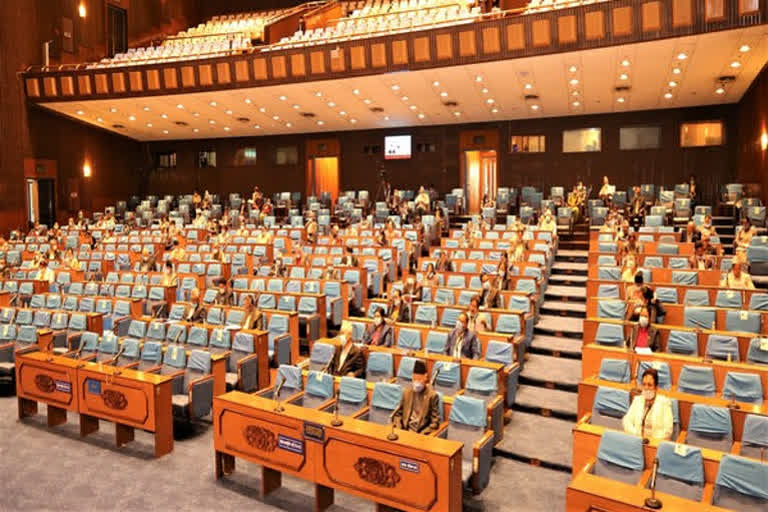Kathmandu:Nepal and India have no option other than holding talks to find a permanent solution to the border dispute amidst a rift in the country's leadership and its move to gain "cheap popularity" in the name of nationalism could backfire on the land-locked Himalayan nation, experts and senior journalists here said on Sunday.
Nepal's ruling and opposition political parties on Saturday voted in unison to amend the Constitution to update the national emblem by incorporating the controversial map incorporating Lipulekh, Kalapani and Limpiyadhura in India's Uttrakhand, a move described by New Delhi as "untenable."
Reacting to Kathmandu's move, Ministry of External Affairs Spokesperson Anurag Srivastava said on Saturday "this artificial enlargement of claims is not based on historical fact or evidence and is not tenable. It is also violative of our current understanding to hold talks on outstanding boundary issues."
"The redrawing of the map with the inclusion of Kalapani area by Nepal and endorsement from the House of Representatives shows the KP Oli government's move to gain cheap popularity in the name of nationalism, which could be counterproductive," said senior journalist and Aarthik daily editor Pralhad Rijal.
Rijal warned that the Oli government's move has created a dispute over the land between Nepal and India, and its repercussions could be costly.
"There are reports that the move was designed after receiving signals from Beijing. If so, it is unfortunate," he said, apparently referring to the growing involvement of cash-rich China in Nepal's political and economic spheres.
READ:Nepal Parliament's lower house passes bill to redraw political map
He said Prime Minister Oli's recent move can also be analysed in the wake of the growing power tussle between him and his rival within the ruling Nepal Communist Party, chairman Pushpa Kamal Dahal 'Prachanda'.
"The Prime Minister had to prove himself more nationalist to maintain his hegemony within the party," he said.
The Oli government is also facing criticism from various quarters over its response to curb the COVID-19 pandemic. Hundreds of people in different cities have been staging protests for the past few days after the government repeatedly overplayed its role in the fight against COVID-19 that has infected 5,760 people and killed 19 people. The majority of the COVID-19 fatalities in the country have been confirmed posthumously, The Kathmandu Post reported.
